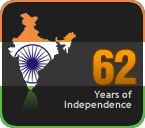Well… one more session of parliament is completed. Let’s summarize and see what happened during the session and understand how the country is being run. We all have seen a lot of cynical reports on the parliament session about shouting matches, disruptions and the amount of money that is being wasted etc. etc. Is this all that is happening or is it the only thing we are interested in!
Isn’t it important for us to take an objective look? It is not about shedding the cynical view but more about understanding and evaluating what is happening before forming an opinion. This is important especially when judging on systems and the institutions that run the country. If we have to take a cynical view then let’s at least take an informed and considered cynical view.
The Budget session of parliament was held between 22 Feb and 07 May with a break of one month in the middle. The session started as usual with the presidential address to the parliament members as the curtain raiser. The main intent of this session is to review and approve the Budget (Annual Plan) for the year 2010-2011. Let’s see what our legislators have worked on in the just concluded session of parliament.
Significant Bills discussed in the session
I am just listing out the highlights of the session and a small synopsis of the Bills considered in this session. What is a bill? A Bill is the draft of a legislative proposal. The process starts with the introduction of a Bill in either House of Parliament—LokSabha or RajyaSabha. A Bill can be introduced either by a Minister or by a member. In the former case it is known as a Government Bill and in the latter case it is known as a Private Member’s Bill. The bill undergoes extensive analysis and discussion by the members. The discussions happen in various stages to analyze the underlying principles and a detailed clause by clause discussion. Amendments proposed by the members will become part of the bill if accepted by the majority in the house. A bill which gets approval from both the houses and the president of India becomes an Act.
President’s Address to Joint session: The president gave a speech to provide the general direction of the government, immediate priorities and preferences on policy matters.
Railway and General Budgets: The budget for the year 2010-2011 is presented with the overall policy, revenue and implementation details. Appropriation bills and finance bills for various departments and ministries are discussed and passed.
Woman Reservation Bill (Constitution 108th Amendment): The bill seeks to reserve 33% of seats in LokSabha and state Assemblies for women. The bill is passed by RajyaSabha and deliberations are going on to bring everybody on board before introducing this in LokSabha.
Energy Conservation (Amendment) Bill: Amended the 2001 Act to empower the Bureau of Energy Efficiency (BEE) to specify the qualifications, criteria and conditions for certifying energy auditors which is presently being done by government officials. It also empowers the central government to prescribe, the procedure for issue of energy saving certificate to consumers and the value of metric ton of oil equivalent of energy consumed. It levies additional penalty for failure to comply with the legal provisions.
National Green Tribunal (NGT) Bill 2010: The bill to set up special omnibus tribunals that would become the sole adjudicators on all `green laws'. Basic principles of green jurisprudence are established. The polluter pays (polluter to pay for any financial liability) and precautionary principle (onus on the group or party under the scrutiny to prove that their actions will not cause harm to public or environment) will now be the basic framework against which the tribunals will adjudicate.
Employees’ State Insurance (Amendment) Bill: Amendments to ensure coverage of more workers under the ESI Scheme in the organized sector, and to enable the ESI Corporation to participate in schemes that may be framed for the workers in the unorganized sector. The amendments are also aimed at improving service delivery to the existing members of ESI Scheme as well as bringing the provisions of the Act in tune with the changing circumstances.
Payment of Gratuity (Amendment) Bill: Amendments to the definition of employees in the 1972 legislation for covering about 60 lakh teachers in private institutions.
Clinical Establishments (Registration and Regulation) Bill: Aims to bring in uniformity in the healthcare delivery sector by making the registration of all clinical establishments mandatory and prescribing enhanced penalty for the defaulters.
Ancient Monuments and Archaeological sites (Amendment and Validation) Bill: To set up a National Monuments Authority to preserve and protect the country’s historical and archaeological sites. The bill stipulates that no construction work will take place in the protected areas without the permission of the authority consisting of archaeological and heritage experts.
Land Ports Authority of India Bill: This bill proposes to establish Land Ports Authority and Integrated Check Posts on the international land borders of the country. The bill seeks to put in place systems, which address security imperatives while also facilitating trade and commerce
Prevention of Torture Bill: India had signed the UN Convention against Torture, Cruel, Inhuman and Degrading Treatment or Punishment in October 1997, which required an enabling legislation to be adopted to reflect the definition and punishment for torture.
Right to Education Bill: Enabling legislation for the constitutional amendment of 2002 is passed and came into force now. You can refer to my earlier posting for further details on this.
Foreign Educational Institutions (Regulation of Entry and Operations) Bill: The bill seeks to allow establishment of foreign education institutions in India and is laying down the regulations and other safeguards in their operations.
National Accreditation Regulatory Authority for Higher Educational Institutions Bill: The Bill envisages constitution of an authority to process the accreditation of higher educational institutions. The accreditation is compulsory for existing and new educational institutions and universities.
Educational Tribunals Bill: To establish a tribunal to resolve issues related to regulation, accreditation, and quality of education and admission process. Many disputes would crop up with increased participation of the private sector in higher education and there was a need to set up tribunal at the national, regional and State levels
Summary of other business of the parliament
Apart from regular discussion and statements on matters of urgent public importance, there were numerous private members bills that were considered. About 150 reports of various parliamentary committees are tabled. Public Enterprises Survey, Economic Survey and 13th Finance Commission report are the notable surveys presented to the people.
Weekend Politician Note: It’s actually an awful lot of work. One important thing that is missing is participation from the most important stakeholder (I mean ‘We’). We need to form our opinions on these matters and set expectations. If we fail to give enough importance to what the parliament is doing, then we are weakening our democracy in our own capacity. I will be posting detailed articles on some of these bills later. Let me know if you are particularly interested in any of them.
Subscribe to:
Post Comments (Atom)


Hi Weekend politician,
ReplyDeleteExcellent post! I always wanted to know this stuff. Never had the patience to sit and watch thru the loooong discussions in parliament.
It would be really interesting to know other facts too.. like which MPs are active in the parliament.. who are the backbenchers..(dozing thru the discussions).. who contributes.. who suggests and who negates everything..
Anyways.. good work!
I agree.
ReplyDeleteActually.. I would like to see how our politicians fare in the parliament. Who represents us well? Who can talk well? Who can take up our problems to the house..
Which party voted against which bill.. some kind of tabular form,..stats...
Good piece of info!
Thanks
-Kay
Great to know that the MPs are working and that some commoners are taking note of it. Liked the "informed cynical view part" good attitude. Many of the bills look interesting, I think Right to Education Bill has a huge potential in shaping up the future.
ReplyDeleteNice work dude.
-yab
Thank you all for your comments. I will try and provide the data you wanted if possible in a future post.
ReplyDelete-Weekend Politician
I feel the session is very useful for every member as generally we hear or discuss about the members shoutings and disruption in the parliament. But in this session writer (weekend politician) has explained the important things that was happened during the parliament sessions.
ReplyDeleteAnyway, I feel it is a good content for me.
Thanks,
Bannu
Kay, Yab and Bannu
ReplyDeleteThis might be interesting for you.
A new Integrated Talk-time Management and Display System was initiated with the installation of electronic display board on both sides of the House, indicating the names of members participating in various debates, discussions on Bills, etc. their party affiliation, division numbers, total time allotted to different parties (including Members coming under 'nominated' and 'others' categories), time already consumed and time left, for Members individually and for political parties. The system inter alia displays name and time taken(in reverse mode) by the Members during the Zero Hour. During Calling Attention, Discussion on Private Members' Bills/Resolutions etc., the time consumed by the participating Members is indicated individually on the display board.
Here are some stats for RajyaSabha:
Number of actual days of sitting 32
Actual Hours of sittings (excluding recess intervals) 130 Hrs.
Time lost due to interruptions/adjournments 47 + Hrs.
Time made up by late sittings/skipping lunch recess 30 + Hrs.